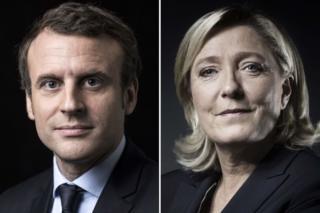By Dr. Binoy Kampmark
The establishment got another burning in the French elections on Sunday, revealing again that there is no level of voter disgust that will not find some voice in the current range of elections. The terror for pollsters and the establishment now is whether Marine Le Pen will realise her anti-Euro project and drag the French nation kicking and moaning into a new, even more fractious order. In her way will be the pro-European Union figure of Emmanuel Macron.
The French example is similar to others of recent times: parties with presumed tenure were confined to a punitive dustbin, rubbished for stale, estranged obsolescence. The Gaullists got what was a fair drubbing – 19.9 percent for François Fillon of the Republicans, a figure crusted and potted with corruption.
It did not, however, mean that both candidates in the first and second positions were political virgins. In that sense, the US election remains an exemplar, a true shock. France retains a traditional appearance to it, albeit a violently ruffled one.
Macron, with his 23.9 percent, supposedly deemed outside the establishment, still held office as minister for economy, finance and industry but flew the Socialist coop in opportunistic fancy. Blooded in traditional harness, he has managed to give the impression that he has shed enough of the old for the new, notably with his movement En Marche. He is blowing hard from what commentators have termed a “centrist” position. (To be at the centre is to be in the middle, which is not necessarily a good thing in current times.)
Just to weaken the sense of Macron as outsider, both establishment parties – the Socialist, led by Benoît Hamon, and the Republican –urged voters to go for the centrist option. This all had the appearance of a gentleman’s seedy agreement, plotted in a traditional smoking room to undermine an unlikable contender. The losers wanted to be vicarious winners. The tarnished Fillon urged voters to “reflect on your conscience.” In effect, Macron as a quantity is being sanitised for stability, the firebreak against the Le Pen revolution.
Le Pen herself speaks to a particular French and nationalist sensibility, tutored to a large extent by her father, who also ran in the 2002 Presidential elections and lost to Jacques Chirac. She is hardly one to be unfamiliar with the political argot, which has retained a reactionary punch in more measured guise.
Le Pen kept her approach punchily traditional, milking the killing last Thursday of a policeman on the Champs-Elysees with old apple and oranges comparisons on security and immigration. Having her in the Presidential office would see the stop of “mass immigration and the free movement of terrorists.”
For Le Pen, the May 7 runoff election would enable a choice to be made between “savage globalisation that threatens our civilisation” and “borders that protect our jobs, our security and our national identity.”
Macron provides an attractive target for the Front National: having worked for Rothschild, he supplies the front for corporate interests, and is “Hollande’s baby” uninterested in French patriotism. He certainly promises to be friendlier to companies in France, with a policy envisaging a cut of the corporate tax rate from 33 percent to 25 percent, while also permitting them to re-negotiate the sacred 35-hour week. His vision of the European Union, in short, is business as usual.
Under Le Pen’s particular tent lie appeals to critics of globalisation, a force that has rented and sunk various industries while also seeking to reform the French labour market. But this nostalgic throw back entails barriers and bridges, building fortifications, holding firm and wishing for the best.
Jean-Luc Mélenchon proved to be another dark horse, the spicy left-wing option to Le Pen, and a candidate who experienced a surge of popularity prior to the poll. His result is a story that has invigorated the left while gutting the socialists, providing us a reminder of the time of a greater radicalism.
“Len Pen,” claims Roger Martelli, “was counting on turning this election into a fight with the Socialist party government, but she had to compete with a radicalized right-wing opposition and socialist opponents who had moved more sharply to the left than she had expected.”[1]
Nor were things pretty for Hamon, with a devastating result to compare to Gaston Defferre’s 5 per cent showing in 1969. The socialists reformed by the 1971 Épinay Congress in the wake of that electoral catastrophe, have been well and truly buried.
What Mélenchon’s popularity suggests is that the European system, at least the model as it stands, needs reform and a degree of disentangling vis-à-vis the state. Nor has he told his supporters to vote for Macron, a paternalistic ploy that can irritate voters.
“None of us will vote for the far-right,” went the consultation to 450,000 registered supporters of the France Untamed movement. “But does it mean we need to give voting advice?”[2] As Der Spiegel opined with characteristic gloominess, “The presidential election in France is becoming yet another end game over Europe’s political future.”[3]
Much will depend on voter turnout come May, and the seasoned opportunism of Le Pen. Her latest play is to place herself above partisan considerations by stepping down from the leadership of the National Front. “So, this evening, I am no longer the president of the National Front. I am the candidate for the French presidency.”
Dr. Binoy Kampmark was a Commonwealth Scholar at Selwyn College, Cambridge. He lectures at RMIT University, Melbourne.






